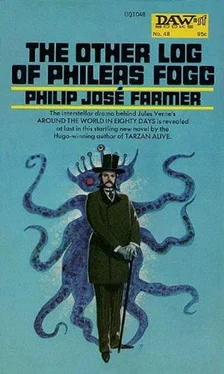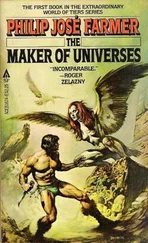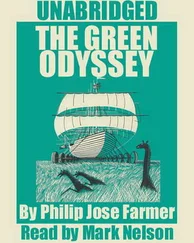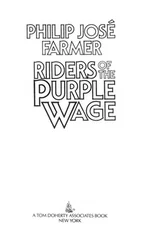Philip Farmer - The Other Log of Phileas Fogg
Здесь есть возможность читать онлайн «Philip Farmer - The Other Log of Phileas Fogg» весь текст электронной книги совершенно бесплатно (целиком полную версию без сокращений). В некоторых случаях можно слушать аудио, скачать через торрент в формате fb2 и присутствует краткое содержание. Жанр: Фантастика и фэнтези, на английском языке. Описание произведения, (предисловие) а так же отзывы посетителей доступны на портале библиотеки ЛибКат.
- Название:The Other Log of Phileas Fogg
- Автор:
- Жанр:
- Год:неизвестен
- ISBN:нет данных
- Рейтинг книги:3 / 5. Голосов: 1
-
Избранное:Добавить в избранное
- Отзывы:
-
Ваша оценка:
- 60
- 1
- 2
- 3
- 4
- 5
The Other Log of Phileas Fogg: краткое содержание, описание и аннотация
Предлагаем к чтению аннотацию, описание, краткое содержание или предисловие (зависит от того, что написал сам автор книги «The Other Log of Phileas Fogg»). Если вы не нашли необходимую информацию о книге — напишите в комментариях, мы постараемся отыскать её.
The Other Log of Phileas Fogg — читать онлайн бесплатно полную книгу (весь текст) целиком
Ниже представлен текст книги, разбитый по страницам. Система сохранения места последней прочитанной страницы, позволяет с удобством читать онлайн бесплатно книгу «The Other Log of Phileas Fogg», без необходимости каждый раз заново искать на чём Вы остановились. Поставьте закладку, и сможете в любой момент перейти на страницу, на которой закончили чтение.
Интервал:
Закладка:
“Poor man!” Aouda said. “To be suffering so and thus doomed to die early when he could live to a thousand years! Indeed, the elixir will only prolong his agonies. Without it, he would die in a few years, his sufferings mercifully ended.”
“Do not waste sympathy on him,” Fogg said. “Nor allow his sickness to cause you to underestimate him. We must be on guard the rest of our voyage on this ship. I do not trust him not to break his oath to us to keep the peace until we land at San Francisco.”
16
Mr. Fogg, as soon as he landed in San Francisco, learned that the next train for New York City left at six in the evening that day. He took rooms for the three in a hotel and then started out for the British consulate with Aouda. He had gone only a few steps from the hotel when he ran into Passepartout. The Frenchman was waiting for him so he could get permission to buy some Enfield rifles and Colt revolvers. Verne says the Frenchman wanted them in case they were attacked by Indians en route to the American Midwest. Both he and Fogg, of course, were thinking more of the defense against the Capelleans than against the Sioux or Pawnee.
A few paces further on, Fogg met, “by the greatest chance in the world,” Mr. Fix. The detective pretended great surprise. Could it be true that he and Mr. Fogg had crossed the Pacific Ocean together and not once encountered each other? Since Fix owed Mr. Fogg so much, he would like to accompany him. Could he go with him on his tour of this pleasant American city, so agreeably Old-Worldish in many aspects?
Mr. Fogg said that he would be honored, and Fix went with the two. On Montgomery Street, the three ran into a great crowd. Every place was jammed with people yelling and screaming slogans and carrying big posters and flags.
“Hooray for Camerfield!”
“Hooray for Mandiboy!”
Fix said that it was a political meeting and hence to be avoided. Americans got violent when they encountered opposition to their political beliefs, and the two parties were out in force today. Mr. Fogg may have thought that the same could be said for Englishmen-and it was true in those days-but he did not say so. Instead, he made another of his classical remarks.
“Yes, and blows, even if they are political, are still blows.”
Shortly thereafter, a fight did break out. The three British subjects found themselves caught between the Camerfieldians and the Mandiboyans. Most of these were armed with canes loaded with lead or billies, and a few had revolvers. Fists, canes, billies, cudgels, and booted feet were used vigorously and, often, indiscriminately. The trio was standing on top of a flight of steps at the street’s upper end but found this position no guarantee of safety. The tide of ruffians swept them off the steps.
Fogg used his fists to protect Aouda. A large muscular chap with a red face and an even redder beard aimed a blow at Fogg. Fix stepped in and took the fist. His knees gave way, along with his silk hat. He staggered back up onto his feet but with glazed eyes. He was destined to carry a large lump on top of his head for the next few days.
“Yankee!” Fogg said, looking contemptuously at the red-bearded rogue.
“Englishman! We’ll meet again!”
“When you please,” Fogg said.
“What is your name, sirrah?” the American said.
“Phileas Fogg. And yours?”
“Colonel Stamp Proctor.”
The avalanche of bodies stormed by. Fogg thanked the detective for his noble interpositioning. Neither was badly hurt, though the clothes of both looked as if they had jumped off a train going at sixty miles per hour. Aouda was, if not untouched, unbruised.
The three repaired to a tailor shop. One hour later, they were back at the hotel in new clothes. On the way, Fogg considered the incident with the colonel. Perhaps he was only a Frisco bully. But that name, Stamp Proctor! Could he be the Capellean proctor, the supervisor, the monitor, of the U.S.A. for the enemy? Did the Stamp indicate that another of his functions was the assassination, the stamping out, of Eridaneans? Or was his name only a coincidence? Nemo had said that the Capelleans were abandoning the old custom of using functional names. Nemo, however, was a liar. And even if he were telling the truth, the reform might not yet have been put into effect.
He told himself that he should not have taken a tour but should have remained, as was his habit, in his room. And why had he broken this habit? He had wanted to show Aouda the city.
Fogg also thought about Fix. He had rushed in to take the blow meant for him. Why would he do this if he were a Capellean? Was it to convince Fogg that he was only an Englishman who would defend another Englishman in Yankeeland? This did not seem likely. If Proctor were a Capellean, he would not want his efforts frustrated. Fix, in fact, should have helped Proctor.
But he had not. On the contrary.
After dinner, Fogg said to Fix, “Have you seen this Proctor again?”
“No.”
“I will return to America to find him,” Fogg said calmly. “It would not be right for an Englishman to permit himself to be treated in that manner without retaliation.”
Fix smiled but did not reply. Fogg wondered what he was thinking. As for his speech, it was true enough. After this was over, he would be back looking for the colonel. As an Englishman, he would have done it for the sake of honor. As an Eridanean, he would be doing it to eliminate a Capellean – if Proctor were such.
There were 3,786 miles of railway to be traversed from San Francisco to New York City. Between the ocean and Omaha, Nebraska, the railroad passed through a rugged land dangerous with beasts and wilder Indians. Part of the territory was occupied by the Mormons, a comparatively peaceful people, though regarded by most Gentiles of that time as uncivilized. The train, averaging only twenty miles per hour because of the many stops, would take seven days for the journey. That is, it would if buffalo, savages, storms, floods, washouts, breakdowns, and avalanches did not interfere. If the schedule were met, however, Fogg would arrive on the eleventh of December to catch the steamer from New York for Liverpool, England.
At eight o’clock, in the midst of falling snow, the car in which Fogg and party rode was converted into a dormitory. At noon of the next day, the train stopped for a breakfast break of twenty minutes at Reno, Nevada. At twelve o’clock, the train was forced to stop until nightfall to let a vast procession of buffalo cross the tracks. At thirty minutes after nine in the evening, the train crossed into Utah.
On the night of the fifth of December, the train was about a hundred miles from the Great Salt Lake. Though Fogg was not aware of it, this was the day that the brigantine Dei Gratia discovered the Mary Celeste sailing along without a soul aboard. If Head had trusted to his luck, he would have been put aboard the Dei Gratia and would, on the twelfth of December, have disembarked at Gibraltar. It is true that he would have been held up by a court of inquiry, but he could have escaped. Thus it would have added one more element of mystery to a case that has puzzled savants and the public and originated many false stories for a hundred years. Even the name of the ship is known to most people as the Marie Celeste. This error is no mystery, however. This derives from an incorrect notation in the New York City pilotage record of the seventh of November, 1872. The error was even perpetuated in the archives of the U.S. State Department, and the American newspapers continued to use the false name.
Perhaps the most influential in spreading this error was A. Conan Doyle, who refers to the ship as the Marie Celeste throughout his well-known story, J. Habakuk Jephson’s Statement.
Читать дальшеИнтервал:
Закладка:
Похожие книги на «The Other Log of Phileas Fogg»
Представляем Вашему вниманию похожие книги на «The Other Log of Phileas Fogg» списком для выбора. Мы отобрали схожую по названию и смыслу литературу в надежде предоставить читателям больше вариантов отыскать новые, интересные, ещё непрочитанные произведения.
Обсуждение, отзывы о книге «The Other Log of Phileas Fogg» и просто собственные мнения читателей. Оставьте ваши комментарии, напишите, что Вы думаете о произведении, его смысле или главных героях. Укажите что конкретно понравилось, а что нет, и почему Вы так считаете.












